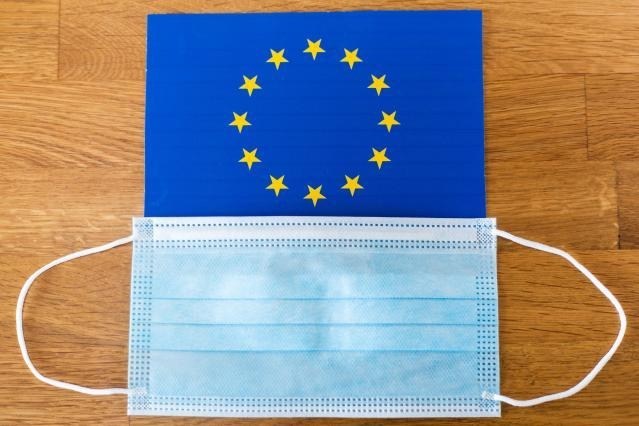European solidarity is invoked in the on-going coronavirus crisis and the economic crisis it has given rise to. As never before in their history, the EU and the member states have a shared interest in tackling two deep crises that they did not see coming in time but for which they cannot be blamed.
There have been many expressions of solidarity by member states. EU has mobilised all its instruments and even creating new ones to coordinate a huge common effort to slow the spread of the virus and to manage the economy which has come to a standstill because of the lockdown measures. It is time for European solidarity and unity.
Last week (3 April), the European Commission presented one of its initiatives, called SURE, which aims at providing loans raised by the Commission on favourable conditions and guaranteed by all member states. The loans are intended for short-term employment schemes in the member states.
These schemes are partly the result of lessons learned from the 2008 financial crisis. Instead of laying off employees during the crisis, companies have an incentive to keep their employees, even if they are not working, because the government will pay most of their salaries.
In this way, companies can keep their workforce, workers can keep their jobs and the economy can jumpstart as soon as the lockdown measures are phased out. The SURE initiative sounds similar to ideas of common borrowing and debt, Eurobonds, that were discussed during the previous economic crisis but the Commission denies that.
Asked by The Brussels Times if the Commission will consider a fiscal initiative based on Eurobonds, or rather “Corona bonds”, during or after the crisis, the reply was negative.
“Our line has not changed,” the chief spokesperson said. The Commission continues to support the member states with all available instruments and all options are on the table but, as president von der Leyne has stated, the options need to be quick, effective and based on consensus with all actors, in particular the member states.
And there are member states that, as during the previous crisis, will vehemently oppose any government bonds issued jointly by all Eurozone countries or EU member states.
Northerners vs Southerners
The so-called Frugal Four, the Netherlands, Germany, Austria and Finland (or the Frugal Six, if also Denmark and Sweden are included), will claim that every member state is responsible for its own borrowing and that prudent “Northerners” should not have to pay for profligate “Southerners”.
In the previous financial crisis, the response by eurozone policymakers exacerbated the crisis rather than solving it. They failed to fix the banks or write down unbearable debts, both public and private. They embarked on collective, excessive austerity across the eurozone, causing such deep recessions that, perversely, public debt soared.
“The financial system became increasingly globalized in the fifteen years before the crisis – and European banks were at the heart of it,” said political economist Philippe Legrain, a former adviser to then Commission president Barosso, in an interview in 2014.
“In particular, German and French banks borrowed in US markets and gambled on subprime mortgages, while also lending recklessly to Spanish and Irish homebuyers, Portuguese consumers and the Greek government, both directly and together with local banks.”
The austerity policies imposed on Greece during the economic crisis ruined the country and was the wrong medicine. All the bailouts did was to compensate the banks and their owners for their losses.
It takes time for an economy to recover from a crisis. The euro had survived in 2014 and the worst seemed to be behind Europe but the crisis was not over, with some countries still in recession and millions of unemployed people. Then policymakers did not listen to advice and did not apply sound economic theory.
Lessons learned
The current coronavirus crisis and its economic consequences are of course different. First of all, it has hit all EU member states. Several countries have underfinanced hospitals which makes the crisis worse – but none of them, nor the EU, did see the crisis coming and acted too late to contain the spread of the virus. And no country will be safe unless all countries are safe.
Economically, all countries are in the same boat. Europe has to keep the economy on life-support so that there will be jobs to return to after the crisis. It could mean that richer countries would need to contribute more, as they already do to EU’s budget, but surely it is in their long-term interest that all countries will recover economically.
If there is an economic lesson to be learned already now from the crisis, it must be that a market economy without government intervention and intervention on EU level will not solve the crisis nor prepare us for next pandemic.
This time, when a pandemic threatens all of Europe, Legrain writes in an op-ed in The Brussels Times that there is a compelling reason for an exceptional common fiscal initiative. “If not now, when?” he quotes the Jewish sage Hillel two thousand years ago. In fact, the old Hillel said also “If I am not for myself, who will be for me?” and “If I am only for myself, what am I?”
“A 'corona bond' would provide a huge boost for the eurozone,” Legrain summarises. “It would enable a massive, collective response to a shared economic crisis, help avert the threat of a financial crisis and avoid the likely pressure for crushing austerity after the crisis has passed.” Crucially, a corona bond would also demonstrate that European solidarity exists.
Those justifying the short-term and ungenerous approach of the “Frugal Four” claim they cannot be blamed for lack of “unconditional solidarity in the form of a blank cheque”. But no one is talking about that. We are talking about an exceptional, limited response to an unprecedented crisis. Such a response will not make EU a “permanent transfer union”.
We may not know yet if such a response will be necessary. It is possible that the member states, with the massive input of liquidity they are going to receive from the existing EU instruments, will weather the crisis and recover more quickly than after the previous financial crisis. If not, the “Frugal Four” must rise up to the task and demonstrate true European solidarity in fighting a common enemy.
M. Apelblat


